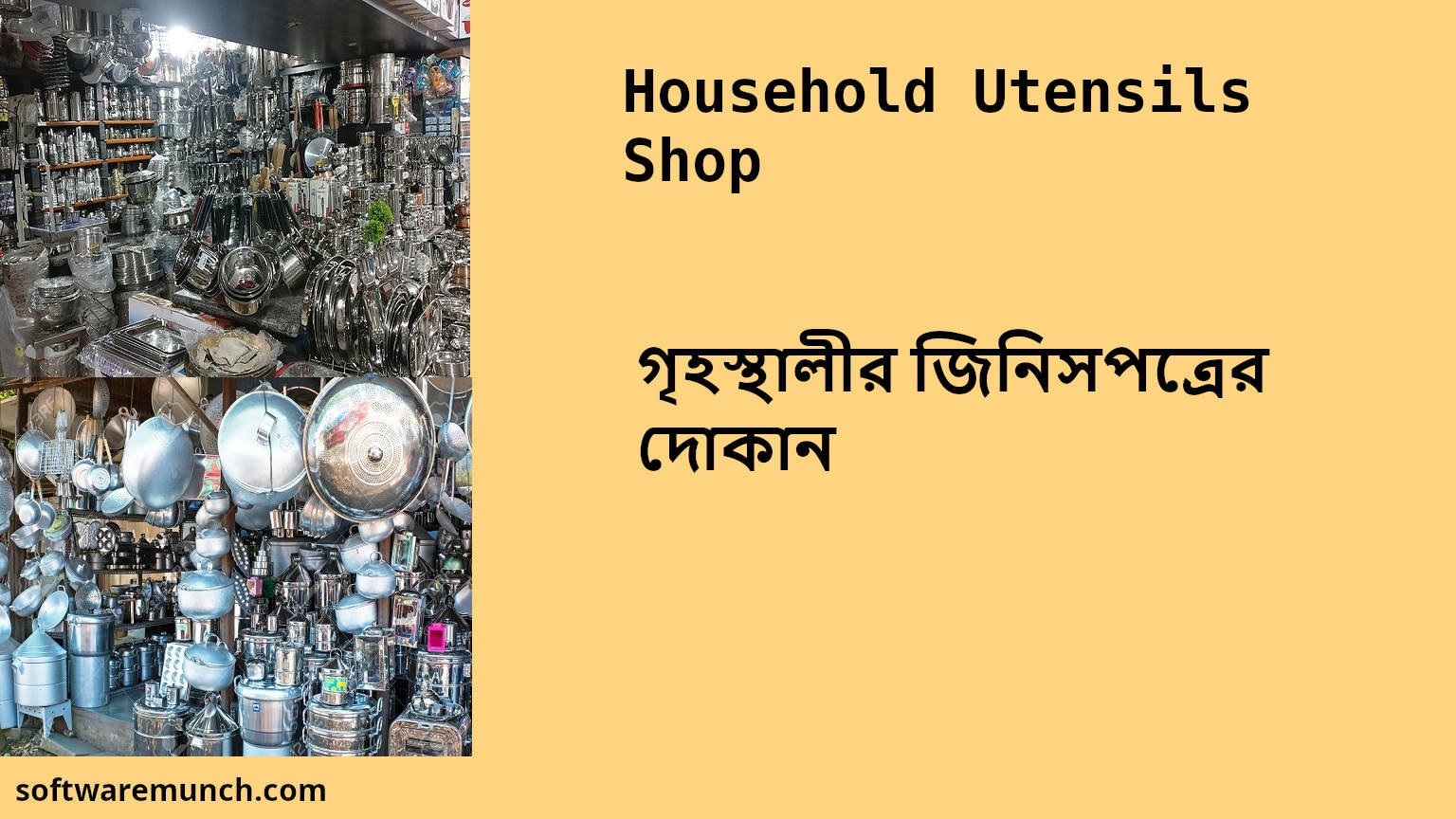In every family whether it is in a village or a town, people need utensils every day. From cooking rice and dal to storing water, from serving tea to washing clothes, utensils are part of daily life. In villages , families still prefer strong steel and aluminum items and slowly plastic items are also becoming popular because they are cheap and lightweight.
Opening a household utensils shop can be a steady business in rural and semi urban areas. Families may not buy utensils every day but whenever there is a marriage, festival or new house construction, the demand rises quickly. Let us see how one can start such a shop and make a proper profit.
How much investment is Needed
A small utensils shop can be started with Rs70000 to to 1.2 Lakhs. The main cost goes into:
- Renting a shop in a busy bazaar area ( Rs3,000 to Rs5000 monthly in small towns or villages).
- Wooden shelves, iron racks and some glass counters.
- Initial stock of utensils like steel plates, glasses, aluminum pots, plastic buckets, mugs, pressure cookers, small gas stoves and containers etc ( make a proper list).
If the shop is bigger and you want to keep branded steel like Milton, Pigeon or Prestige, the investment may go higher. But a simple shop with local steel and aluminum items is enough for the beginning.
How to Arrange the Investment
Since utensil shops are not usually covered under government schemes like Digital seva or CSC one may have to look for other ways:
- Small savings from family.
- Loan from local co operative banks or microfinance groups.
- Borrowing from relatives with small interest.
- some distributors also give goods on credit to be paid after one month.
If managed carefully, even a small shop grows slowly into a bigger store.
Where to buy Utensils
For Assam, big wholesale markets are in Fancy Bazar ( Guwahati ), Silchar Fatak Bazar, and Hailakandi Bazaar.You can buy online as well, For West bengal, one can go to Burrabazar in Kolkata, Siliguri wholesale market and Malda town.
Most of the steel and aluminum items come from big factories in Kolkata and Gujarat. Plastic goods usually come from West bengal or Delhi distributors. At the beginning, one should visit 2 to 3 wholesale markets, compare prices and make connections.
Stocking the Shop initially
It is not possible to keep everything in the beginning. A new shop should focus on:
- Steel plates, glasses and spoons.
- Aluminum dekchi ( pots) for rice and curry.
- Plastic buckets, mugs and containers.
- Small items like knives, strainers and serving spoons etc.
During festival season or weddings, you can add big utensils like tawa, kadai , dekchi or large storage drums.
How to Get Goods without Buying in Bulk
Many distributors work with shopkeepers on a consignment basis. This means the goods are placed in the shop and the shopkeeper pays only after selling those items. For a beginner this is very useful because there is less pressure on investment.
To get this facility, one should do the following:
- Meet wholesale distributors in Guwahati or Kolkata even Surat in gujrat.
- Ask for their credit terms.
- Build trust by paying on time.
Slowly when they see your business is running, they will give you more goods without advance.
Licenses and Permission
A trade license from local panchayat or municipality is required. If the annual turnover grows beyond a certain limit then GST registration may also be needed, especially if you deal with branded items.
Problems and Struggles in the beginning
Like any small shop, there are challenges:
- heavy utensils need strong racks and safe storage.
- During rainy season, rust can damage steel if not kept properly.
- Big shops in nearby towns may sell at cheaper prices, so strong competition is there.
- Some goods may stay unsold for months.
But on the positive side, utensils never go out of use. Families always need them. And during weddings and festivals like Durga Puja, Bihu or Eid, or new housewarming ceremonies, sales will increase a lot.
Extra Services for more income
A utensils shop can also sell:
- Pressure cookers, mixer grinders, and small kitchen appliances.
- Gas stoves and cylinders ( after getting license).
- Gift items for marriage season.
Some shopkeepers even start small exchange offers like “Give old aluminum, take new steel with discount.” This attracts customers always.You can go to houses in your para or Gali and ask for those.
Last few Words
A house hold utensils shop is not only a business but also a service that supports daily life in rural and semi urban areas and provides convenience to households. In small towns and villages such shops are always needed by families for their daily kitchen needs.
With proper planning, building relations with wholesalers and giving friendly service to customers ( like exchange offers) one can turn a small utensils shop into a stable source of income for the family.
